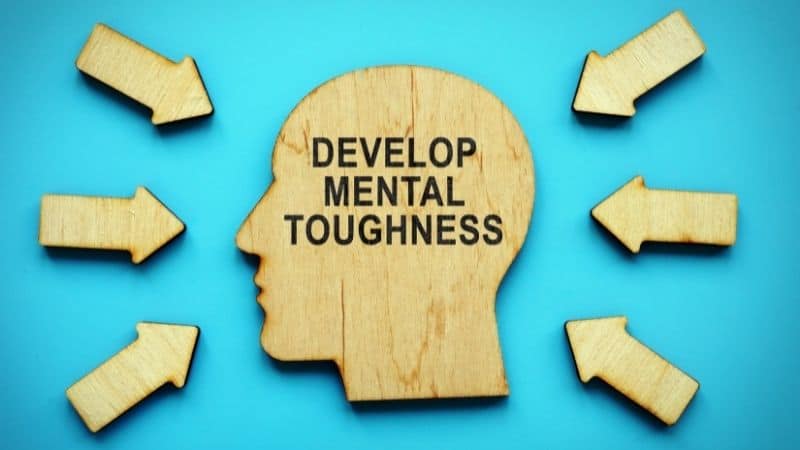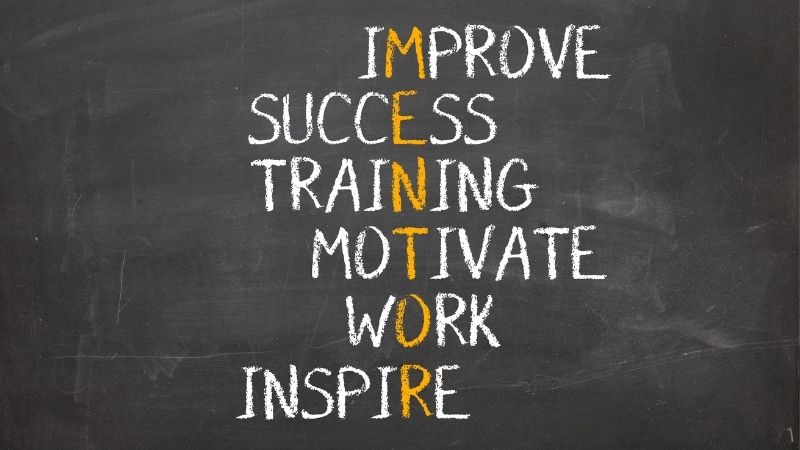Leadership behaviors refer to what leaders do every day. We can talk about strategies and techniques leaders use to influence people and make a difference. But it is their actions that define their leadership.
Before you proceed, if you want to learn more about leadership, I have written a guide for you. After reading this article, you can go to What Leadership Is.
My adherence to these leadership actions gets deeper every day. They work for me and I encourage you to try them too.
What are leadership behaviors?
Leadership behaviors are leaders’ deliberate actions to guide their teams and achieve organizational goals. Effective leaders communicate a clear vision, inspire their team, and foster an environment of collaboration and trust. They make strategic decisions, set expectations, and provide the resources and support needed for team members to excel.
A key aspect of leadership behaviors involves modeling what they expect from their team. Leaders demonstrate integrity, accountability, and resilience, creating a culture of excellence. Leading by example motivates their team to adopt similar values and work ethic.
Leadership behaviors also encompass continuous development and innovation. Leaders invest in their personal growth and the development of their team members, encouraging a culture of learning and adaptability. They stay attuned to industry trends and emerging challenges, ensuring their organization remains competitive and forward-thinking.
🚀 Ready to lead at the highest level? Our program builds the skills, strategies, and confidence leaders need to excel. It’s time to stop guessing and start leading with intention.
Why Leadership Behaviors Are Important
Leadership behaviors are the deliberate moves a leader makes to guide their team and achieve goals. Think of them as the strategic plays in a game. They give clarity and direction, helping everyone know their roles and the collective aim. Effective leaders communicate a clear vision, inspire their team, and create a collaborative environment.
These behaviors are also about setting the right example. Leaders demonstrate integrity, accountability, and resilience, setting a standard for others to follow. When a leader models these behaviors, it encourages the team to adopt the same values, fostering a culture of trust and excellence.
Leadership behaviors drive continuous development and innovation. Leaders invest in their growth and the development of their team. They stay attuned to industry trends and emerging challenges, ensuring their organization remains competitive.
This commitment to learning and adaptability helps teams navigate challenges and seize new opportunities, ensuring long-term success.

Great leadership isn’t an event—it’s a habit. Get actionable leadership habits every Monday and Thursday.
Vital Behaviors
I agree that there is no one way of leading people.
Leadership is not like turning on and off a light switch. Leaders need to find the right mix of strategies and techniques to get things done or make change happen.
However, we don’t have to search in the dark. We don’t have to reinvent the wheel. We don’t have to keep on breaking the rules.
Break the rules! Well, that was the advice of the speaker who delivered a talk before me during a youth leadership boot camp.
I agree that to lead is to break a few rules, but leadership isn’t about breaking the rules.
If we want to become good leaders, we need to understand the rules that work and the rules that no longer work.

1. Ask Tough Questions
Questions determine answers. There are no wrong answers, only weak questions. My leadership ability has not been defined by how many answers I have but by the quality of my questions.
When I was young, I thought good leaders had all the answers. Intelligent people seemed to have smart answers to questions.
Students are graded for the answers they give, not for the questions they ask. The teacher is testing your ability to remember, not your ability to think.
Most people are afraid to answer questions, much more to ask tough questions. I ask people tough questions, the ones that they are not comfortable asking themselves.
But before I do, I ask myself tough questions too.
I constantly seek answers to my most challenging questions about leadership and life.
What are examples of tough questions? Try these ten questions.
Asking ourselves tough questions isn’t a one-time activity. It is a daily practice. It is what we do when we want to choose well.
When reading leadership books, I begin with my questions. I made it a habit to read books on purpose. 1
Very few of us learned this leadership principle in school. We are expected to produce answers. But the best among us know how to ask the toughest questions.
2. Play to Your Strengths
As a leadership action, I prefer to focus on the positives. Instead of asking what my people do not have, I give more attention to the assets that we can multiply.
Our education system is based on wanting what you don’t have instead of building on what you have.
We tend to compare ourselves with others and often fail because we play on our weaknesses.
I understand where most people are coming from because I got the same education. I found it difficult to unlearn a fixed mindset. Reading a book on Growth Mindset won’t do the trick.
I’ve got to choose to play on my strengths each day. Great leaders do.
Great leaders focus on what they can genuinely contribute. They are fully aware of their talents and strengths. They build on them. They multiply their value by making the most of what they have.
Some people are great in carpentry; others are great in dentistry. People can be both, of course, but they don’t have to force themselves into something that does not excite them at all.
I do not have to be like the famous X because he is renowned for doing Y. I can be the rockstar A for doing my B.
Go where your strengths are and find out how you can turn your strengths into a superpower.

3. Cultivate Good Character
Character, as often said, is who you are when no one is watching.
I wonder what monks are doing now. They are often alone.
We are not born into a character. We can cultivate our character and mold ourselves into the person that we want to be.
I chose my core values and decided to align my actions to those values.
You, too, can choose the life principles you want to live by. Choosing to live our lives according to our values is what we call self-discipline.
I am leading myself. I decide what kind of person and leader I want to become.
You can learn more about developing leadership characteristics. Read the qualities of good leaders.

4. Think & Play Big
To think big is to stretch yourself so you can reach your full potential. But most people are afraid to think big.
I was never afraid to think big. But I did not realize that my “thinking big” was too small. That’s because I did not see every opportunity. I was not in the best position to see opportunities.
There are many reasons why people think small.
It might be because people are afraid to fail.
It might be because they don’t think they have healthy doses of self-worth.
It might be because they are not aware that thinking big is as easy as thinking small.
I am making an effort to find and create opportunities. And when I think I believe I am already thinking big, I ask myself how others can multiply my big a thousandfold.
Good leaders do not just think big. They think big and play bigger.
The thinking part is what I call strategy.
Leaders find ways to 2x, 10x, or 1000x their results. They fully understand that they don’t have to do 1000x things to get 1000 results done. They look for one thing that will bring 1000x.
The playing part is what I call execution.
Leaders choose what to do, and they decide what not to do.
My time is limited, my energy gets exhausted, and my resources are scarce. I cannot do all the things I want because of my limitations.
Constraints force me to get creative.
I know that not all solutions are equal. One solution can be 1000x more potent than other solutions. What I strive to do is find the best solution and execute the solution effectively.
One more thing. Some leadership principles seem to counter each other. For example, sometimes I tell people to start small. Starting small does not mean playing small. You can play big and think big when you start small. Sounds like a Yoda moment for us, right? Continue reading, you’ll soon get clarity.

5. Work Harder
Some leadership speakers say that you don’t have to work hard. You only need to work smart.
I don’t disagree because I encouraged you to play smart when I told you to think and play bigger.
But don’t forget that most of those who tell us not to work hard and play smart are scammers. Not unlike the politician who promised that he could do in 3 to 6 months what he failed to do in 30 years.
Leadership is hard work. It is a contact sport.
I will keep on failing because I will not be successful all the time. And I will learn from my successes and failures. Success is a lifetime sport.
Working harder is working smarter.

6. Be Mentally Tough
Mental toughness refers to our stick-to-itiveness. Mentally tough leaders understand that there are many obstacles to achieving their goals. The most formidable is mental. Among the leadership principles you will read today, I strongly suggest that you study literature about mental toughness.
When I was young, I doubted my ability to lead. Others doubted me too.
The first time I conducted a leadership training program, I felt like an impostor, and because of my limiting beliefs, I sabotaged myself.
To be mentally tough, I must know my purpose and stick to it.
Leading people isn’t easy. If it were, there wouldn’t be millions of books discussing how to become an effective leader.
In times of a crisis, like the Covid-19 pandemic, mentally tough leaders find ways to overcome obstacles. If they can’t, they persist.
I find ways to go around obstacles. And if that is not possible, I’ll undercome them.
It is not over until I win.

7. Lead with humility.
I seldom see humble leaders these days, probably because I hear more from those who project their macho images too big.
A world leader, for example, bragged that Covid-19 is nothing but flu. It will disappear in no time.
He did not listen to experts. Instead, he spread information that will support his claim of being a genius.
I listen to people. Listening to people is never a weakness. It is an effective leadership tool.
I know my limitations. I know that I cannot do and I do not understand everything. There are people who know more than they do.
Good leaders are wise. When they make the right decision, they honor the people who helped them. They gave credit to him it is due.
Because of this, when I fail, I do not point my fingers at others. I take responsibility and hold myself accountable.
Imagine if our government leaders have some liters of humility in their bloodstreams, we will have a greater chance of handling the Covid-19 crisis.

8. Build team spirit.
Attitude determines aptitude. Team spirit is an attitude that influences individual members of a team to work well with others to achieve a common purpose.
A group of people can accomplish their tasks without team spirit. People who work in assembly lines may still become productive if they do their duties excellently.
But there are situations when leaders have to encourage team spirit. In times of crisis, people need to support each other. When people are afraid, they can find confidence in the thought that those around them will help them.
In facing complex challenges that require people with complementary skills to work together, team spirit ensures that everyone places team goals above personal goals.

9. Work on the whys.
Leaders know their whats, their hows, and more importantly, their whys. As I have mentioned above, mentally tough people keep their eyes on the goal.
I know my purpose for leading. It was not obvious at the beginning, but I knew there was a deeper purpose in my leadership. I kept on asking why I was doing what was doing.
Their first purpose is to find meaning in the doing.
For example, a teacher’s why goes beyond having a job. Of course, we need jobs to keep our flesh and soul together. But the purpose of teaching is beyond that.
I teach not because I want to teach. I love teaching, but teaching is beyond that.
Because I keep on clarifying your whys, I am filled with enthusiasm. I do my job with clarity and conviction. I am a magnet to those who have the same purpose in life – and I gravitate toward them too.

10. Build your self-worth.
Great leaders are humble. They listen to people and give them the respect they deserve. They understand that they cannot lead unless people follow them.
They have strong will too. You will find some leaders too stubborn. They do what they ought to do though the world doubts them. So, some people who don’t understand their stubbornness find them arrogant.
Great leaders know their true worth. They have healthy self-regard.
Most often, those new leaders underestimate their capability to lead. Because of this, they accept every piece of advice from so-called leadership gurus.
“Fake it until you make it” is widespread but wrong advice. Some insecure leaders fake their confidence. At times, this attempt to fake confidence sounds arrogant, if not stupid.
I choose to be authentic. It is easier to be sincere and true than to fake it. Those who spend more time “faking it” will not make it. They will become masters in faking it.
Trust yourself. Lead yourself first.

11. Know your stuff.
Competence inspires confidence. Because I know my stuff, I face challenges knowing that I can get out alive.
We won’t go near a building on fire, but firefighters would even get inside to save people. That’s because they know their stuff.
The same is valid with leaders who know their stuff. Know your people, process, product, service, and profit stuff.
Some people will believe you when you promise the moon and the stars to them. But in times of crisis, they are not looking for a motivational speaker; they want someone who will lead them. Yes, someone who knows his or her stuff.
I am not the most charismatic leader or speaker, but people trust me because I know my stuff.
12. Give people autonomy.
Leaders seek meaning, growth, and autonomy. You demand these so you’ll succeed.
I help people find meaning in what they do and grow through enabling experiences. I do these by inspiring a shared vision and developing a learning culture.
I am comfortable giving people autonomy. I do not believe that by giving people autonomy, I am reducing their power and authority. This is hogwash. People grow best when they are free.
I am not working with idiots. I refuse then to consider myself a genius followed by a million idiots.
I am working with people who have the same dreams, missions, and values. We work together because I desire a future that can only be achieved when followers think like leaders.
I give them autonomy and allow them to multiply what I can do. I give them autonomy to discover untapped strengths. I give them autonomy, so they perform at their best.
13. Keep your leadership simple.
Leaders use words that people understand. They find stories to make their message clear. That’s because challenges looked insolvable unless they are understood.
We understand things when they are simple.
Architects know to read a blueprint of a house. I don’t. If I were to appreciate a house design that I want for my family, they could provide me a sketch or a 3d model.
Okay. That example does not sound easy. People expect leaders to make things easy for them. But that’s not always possible.
Your job is to make complex problems simple. Help people see the crux of a problem. Show people how things are.

14. Have initiative.
Kusang-palo is a Filipino value that is equivalent to the words initiative and proactive. Leaders take the initiative to find solutions to problems. They don’t wait for a mandate, position, or power.
I saw the difference between politicians and leaders during the Covid-19 crisis. There are leaders like Donald Trump who refused to acknowledge the problem. People who refuse to recognize that a problem exists do not hold themselves accountable.
On the other hand, Jacinda Ardern of New Zealand was able to unite the leaders of her country in the fight against Covid-19.
In the Philippines, we have Leni Robredo, who, despite the lack of budget, was able to bring together the private sector to participate in bayanihan.
We have Vico Sotto, who took the initiative to purchase vaccines. They did not wait for Duterte to do the right thing because every good leader takes the initiative.
If you intend to lead people, find solutions without being told.

15. Make small wins, daily.
Maybe you can become a perfect leader. I am not, but I won’t say that you cannot be. You can always try.
However, I choose to make things simple. Since learning how to lead is a lifelong process, I choose progress over perfection.
The people I lead change. I change too.
I cannot cross the same river twice. There is no repeat in leading people. Each touchpoint is a new experience. I can bring my learning to every unique experience, and I can learn each time.
16. Help people succeed.
I say you are a good leader if you can build leaders. You are successful when you help others become successful too.
Earlier I said that leadership is about helping people realize their dreams. You help them live in the Promised Land.
Find out what people genuinely need. Then, help them succeed.

17. Keep learning.
The final leadership principle is also what I offer to people. Get good leadership training.
I find many opportunities to get good leadership training. I read books, join webinars, and participate in online workshops.
I can enroll in many online courses, some of which you can get for free. But I always opt for training that provides real value.
Leadership is a journey. You can learn through experience.
But I do not need to spend 10,000 hours on becoming good at leadership because I have opportunities to learn from others.
I recommend that you go beyond the “basic leadership training.”
Instead, find those leadership training programs that you can use immediately.
18. Embrace a growth mindset.
You can imagine limitless possibilities when you embrace a growth mindset. You don’t put a limit on what you achieve. You don’t think that the size of your wallet, your education, your status in life, or the kind of people you lead determines what you can achieve.
I believe we can grow where the sun is shining.
I have learned both from my successes and failures. I ensured that I didn’t get drunk with success; failures did not stop me.
A leader with a growth mindset is more interested in learning than impressing people. Making a good reputation is a good thing for people to trust us; however, our ultimate goal must be to help people get to the Promised Land. Therefore, making the vision real is more important than creating an impression.
19. Always build momentum.
Momentum is our friend. We get to do better when we are in the flow. And the good news is that momentum isn’t dependent on motivation. We can make and build momentum each day.
Leaders must make people flow together in the same direction. You can do it faster by building momentum.
It is not easy at first. However, you must exert effort and continuously and patiently move forward. Inspire people to do the same until momentum takes over.
With momentum, you become unstoppable.
Leadership Articles
In describing each of the leadership principles, I included examples of actions that leaders take. That’s because I find it easier to understand a principle in action.
Continue your leadership learning journey. I encourage you to explore the following leadership articles.
I recommend also that you explore the following vital behaviors of good leaders.
Take Aways
I have shared with you these vital behaviors of leaders. My hope is you pick some of them or be inspired to create your list of leadership actions.
Here are a few takeaways you can write in your notebook.
Do you know which of these leadership principles is most important to me? I will be happy to hear from you.
- When reading leadership books, I begin with my questions. I made it a habit to read books on purpose. When you begin with your tough questions, you are not just reading for reading. You will discover leadership wisdom from the books which you will not get if you do not begin with questions. ↩︎




